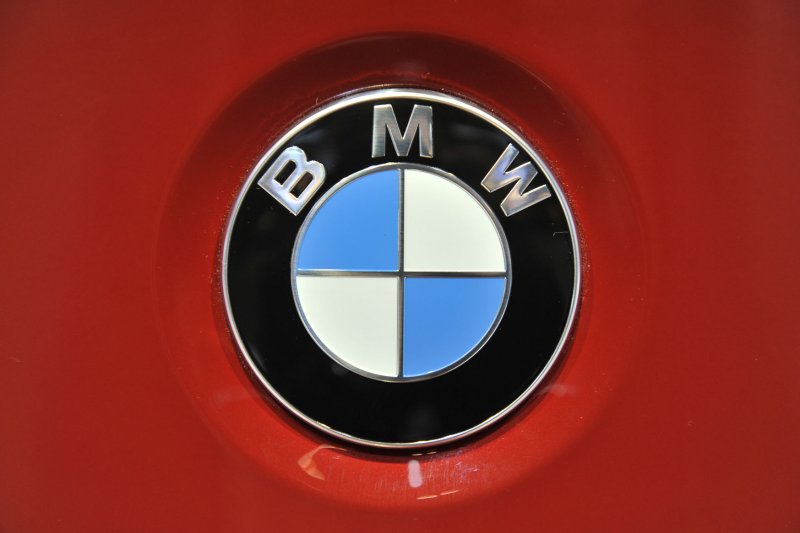The BMW logo is seen on a 328i at the Chicago Auto Show. BMW, Daimler and Volkswagen were accused by the European Union on Friday of collusion in allegedly working together to delay the use of clean emissions technology in their vehicles. File Photo by Brian Kersey/UPI |
License Photo
April 5 (UPI) -- The European Commission accused German automakers BMW, Volkswagen and Daimler Friday of colluding to impede technologies that limit emissions.
A Statement of Objections from the commission said the companies worked together to slow development of clean emissions technology through devices and software. The investigation began late last year, more than a year after the EU seized company records at all three automakers.
Friday's statement indicates the commission, the administrative arm of the European Union, believes the companies violated antitrust rules, which led to higher emissions from their gasoline- and diesel-powered models. The automakers could be fined up to 10 percent of their annual worldwide revenue.
"The commission's in-depth investigation focuses on information indicating that BMW, Daimler, Volkswagen, Audi and Porsche, also called the 'circle of five,' participated in meetings where they discussed inter alia the development and deployment of technologies to limit harmful car exhaust emissions," the commission said in a statement. Audi and Porsche are owned by Volkswagen.
The commission says BMW, Volkswagen and Daimler coordinated strategies to reduce their vehicles' use of AdBlue, a device placed in catalytic systems to reduce nitrogen oxide emissions from diesel passenger cars made between 2009 and 2014. They are also accused of slowing the introduction of Otto Particulate Filters, which are designed to reduce particulate emissions from gas-powered cars. The non-use of both products led to lower costs for the manufacturers and improved mileage of the vehicles, but higher emissions, the EU said.
The EU investigation is not related to Volkswagen's "Dieselgate" scandal in which the automaker sold vehicles with software designed to cheat emissions tests. For that case, Volkswagen was indicted in the United States and former CEO Martin Winterkorn was charged last month by the U.S. Securities and Exchange Commission for defrauding investors.
BMW, Daimler and Volkswagen can appeal the EU charges.















